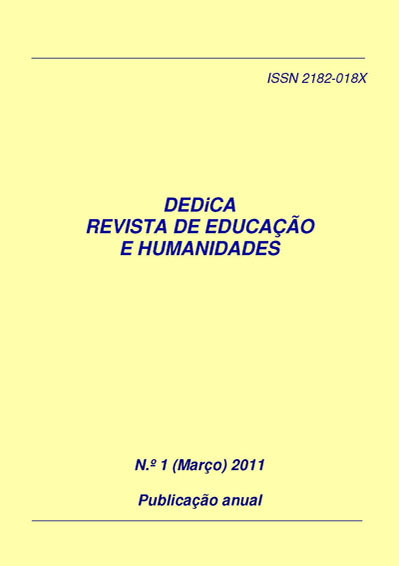El estatus de los profesores de minorías étnicas en Inglaterra: el racismo institucionalizado en la sala de profesores
DOI:
https://doi.org/10.30827/dreh.v0i1.7151Palabras clave:
estatus ocupacional, profesores negros y de minorías étnicas, asiáticos, afro-caribeños, modelos de conducta, discriminaciónResumen
Este artículo presenta los resultados de una investigación llevada a cabo con profesores negros y de minorías étnicas en Inglaterra, específicamente (i) para verificar si el prestigio de la enseñanza había influido en su decisión de entrar en la profesión y (ii) para descubrir las autopercepciones de su estatus dentro de la profesión. Los datos fueron obtenidos a partir del Proyecto del Estatus del Profesor a nivel nacional, realizado en Inglaterra en 2002-2006, combinados con datos no publicados previamente de un estudio de seguimiento con profesores asiáticos en 2007. Las conclusiones, basadas en grupos de discusión con 65 profesores (afro-caribeños, pakistaníes, indios, de Bangladesh), residentes en cuatro regiones de Inglaterra, indican que a los profesores no les influyó el estatus de la enseñanza sino que habían entrado en la profesión por razones intrínsecas, tales como mejorar el rendimiento de los niños, y de ser modelos de conducta para todos los niños, además de para los demás profesores. Las autopercepciones de su prestigio en el ámbito de la profesión son bajas, como se ve, por ejemplo, en el rechazo de sus metodologías de enseñanza culturalmente sensibles y de sus luchas para alcanzar papeles de liderazgo. Este último hallazgo se avala repetidamente en estudios sobre profesores negros y de minorías étnicas y requiere la monitorización a nivel nacional de las trayectorias de sus carreras.Descargas
Citas
Ajegbo, K.; Kiwan, D.; Sharma, S. (2006). Curriculum Review: Diversity and citizenship. Nottingham: DfES. Accessed 25/1/07. Available at: http://publications.teachernet.gov.uk/eOrderingDownload/DfES_Diversity&Citizenship_doc.pdf
Alexander, R. J. (2004). Still no pedagogy? Principle, pragmatism and compliance in primary education. Cambridge Journal of Education, 34, 1 (2004) 7-33.
Alexander, R. J. (2010). Children, their world, their education. Final report and recommendations of the Cambridge Primary Review. London: Routledge.
Baker, M. (2010). What does academy status really mean? Accessed 29/1/11. Available at:
http://www.mikebakereducation.co.uk/articles/70/what-does-academy-status-really-mean
Bhattacharyya, G.; Ison, L.; Blair, M. (2003). Minority Ethnic Attainment and Participation in Education and Training: The evidence. RTP01-03. London: DfES.
Bourdieu, P. (1984). Distinction: A social critique of the judgement of taste. London: Routledge and Kegan Paul.
Department for Education (DfE) (2010). The importance of teaching. The Schools White Paper. Cm 7980. Norwich: The Stationery Office.
DfES (Department for Education and Skills) (2001). Professionalism and Trust: The future of the teaching profession. Secretary of State’s Speech to the Social market Foundation. November 2001. London: DfES.
Cunningham, M. (2006). Minority ethnic teachers as socio-cultural empathisers: Findings from the Teacher Status Project. International Journal of Learning, 13, 6 (2006) 79-86.
Cunningham, M.; Hargreaves, L. (2007). Minority ethnic teachers’ professional experiences. Research Report RR853. London: DfES. Available at: http://www.educ.cam.ac.uk/research/projects/teacherstatus/
Everton, T.; Turner, P.; Hargreaves, L.; Pell, T. (2007). Public perceptions of the teaching profession. Research Papers in Education, 22, 3 (2007) 247-265.
Galton, M.; MacBeath, J. (2008). Teachers under pressure. London: National Union of Teachers/ Sage.
Ganzeboom, H. B. G.; Treiman, D. J. (1996). Internationally comparable measures of occupational status for the 1988 International Standard Classification of Occupations. Social Science Research, 25 (1996) 201-239.
Green, A.; Owen, D.; Wilson, R. (2006). Changing patterns of employment by ethnic group and for migrant workers. National Report. Warwick Institute for Employment Research. Coventry: Learning Skills Council. Accessed 30/1/11. Available at:
Hansen, A. (2009). Researching ‘teachers in the news’: The portrayal of teachers in the British national and regional press. Education 3–13, 37, 4 (2009) 335-347.
Hargreaves, L.; Cunningham, M.; Hansen, A.; McIntyre, D.; Oliver, C. (2007a). The status of teachers and the teaching profession in England: views from inside and outside the profession – Synthesis for the final report of the Teacher Status Project. RR831A. London: DfES. Available at: http://www.education.gov.uk/rsgateway/DB/RRP/u013771/index.shtml
Hargreaves, L.; Cunningham, M.; Everton, T.; Hansen, A.; Hopper, B.; McIntyre, D.; Oliver, C.; Pell, T.; Rouse, M.; Turner, P. (2007b). The status of teachers and the teaching profession in England: views from inside and outside the profession - Evidence Base for the Teacher Status Project. RR831B. London: DfES. Available at:
http://www.educ.cam.ac.uk/research/projects/teacherstatus/
Hoyle, E. (2001). ‘Teaching prestige, status and esteem’. Educational Management and Administration, 29, 2 (2001) 139 –152.
Lortie, Dan C. (1975). Schoolteacher. Chicago: University of Chicago Press
McNamara, O.; Howson, J.; Gunter, H.; Fryers, A. (2009). The leadership aspirations and careers of black and minority ethnic teachers. Report for NASUWT and National College for Leadership of Schools and Children’s Services. Accessed 10/8/10. Available at:
http://www.nationalcollege.org.uk/index/docinfo.htm?id=31703
Maylor, U.; Dalgety, J.; Ross, A. (2003). Minority Ethnic Teachers in England. London: GTC.
ONS (Office for National Statistics) (2010). Statistical First Release School workforce in England January 2010 (Provisional) SFR11/2010. London: Department for Education. Accessed 30/1/11. Available at:
http://www.education.gov.uk/rsgateway/DB/SFR/s000927/sfr11-2010v2.pdf
National Archives (2009) Statistical First Release: School, pupils and their characteristics January 2009 (Provisional) (SFR 08/2009). Accessed 30/1/11. Available at:
Quiocho A.; Rios, F. (2000). The power of their presence: minority group teachers and schooling. Review of Educational Research, 70, 4 (2000) 485-528.
Ranger, C. (1988). Ethnic Minority School Teachers: A survey in eight local education authorities. London: Commission for Racial Equality.
Ross, A. (2002). Institutional Racism: the experience of teachers in schools. Paper presented at the British Educational Research Association Annual Conference, Exeter, September. Accessed 30/1/11. Available at:
http://www.dorsetrec.org.uk/Pubs/Reports/Docs/racism%20BERA%202002.PDF
Runnymede Trust (2003). Black and minority ethnic issues in teaching and learning. Briefing paper. Accessed 25/1/07. Available at:
http://www.runnymedettrust.org/projects/education/BMEissuesDiscussionPaper.pdf
Turner, Bryan S. (1988). Status. Milton Keynes: Open University Press.












